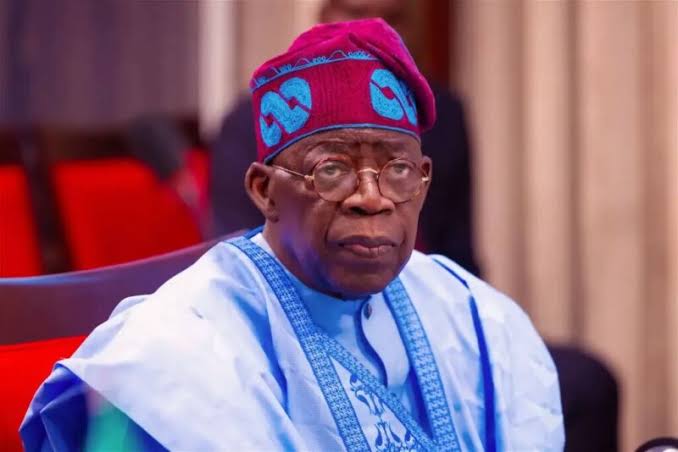Nigeria First Policy: New dawn for local industries or another false promise?

10 things to know about Saint Lucia amid Tinubu’s visit.
The president of Nigeria, Bola Ahmed Tinubu announced the “Nigeria First Policy,” a bold directive aimed at prioritizing Nigerian industries in all government procurement activities. As reported, the policy has sparked a wave of reactions across the nation, igniting hope, skepticism, and a renewed conversation about Nigeria’s economic future. As Nigerians grapple with the implications of this policy, the question looms: can this be the catalyst for a self-reliant economy, or will it falter like many initiatives before it?
What the Nigeria First Policy is about
At its core, the “Nigeria First Policy” seeks to address a long-standing economic challenge: Nigeria’s heavy reliance on imported goods, which has reduced local industries and drained foreign exchange reserves. According to the World Bank, Nigeria’s import bill for manufactured goods alone exceeded $30 billion in 2023, while local factories operated below 40% capacity. President Tinubu’s directive mandates that all government procurement prioritize locally made goods and services. Where local supply is insufficient, contracts must include provisions for technology transfer, local production, or skills development.
The policy outlines specific actions for the Bureau of Public Procurement (BPP) and Ministries, Departments, and Agencies (MDAs). The BPP is tasked with revising procurement guidelines, creating a Local Content Compliance Framework, and maintaining a register of high-quality Nigerian manufacturers. MDAs, on the other hand, must justify any procurement of foreign goods, conduct audits of their procurement plans, and face sanctions for breaches, including cancellation of contracts and disciplinary action against officers.
RELATED STORIES
10 fact-based reasons why Nigeria’s economy is far from being in shambles
Entrepreneurship: The way forward for Nigerian economy
Reno Omokri: How President Tinubu can finish what Chief Abiola started
Implications of the policy for local industries
For many Nigerians, the policy feels like a long-overdue lifeline. Across the country, many manufacturers see it as a potential turning point for their struggling business. Several local businesses produced similar quality of products, however government agencies and ministries fail to patronize them and shift contracts away from these local manufacturers to foreign suppliers. If this policy is enforced, it could bring these local manufacturers back to life and might even hire more workers.
The policy is no different from previous efforts to boost local industries, such as the Industrial Policy of Nigeria from 1989, which offered incentives like tax holidays for “infant” industries. However, those efforts often fell short due to poor implementation and corruption. Tinubu’s directive, with its emphasis on transparency and accountability, aims to avoid those pitfalls. A 2024 Brookings Institution report highlighted that e-procurement systems, which Nigeria has been adopting, could improve transparency and competition as key elements the “Nigeria First Policy” seeks to leverage.
The cost of the policy on Nigeria’s economy
For ordinary Nigerians, the policy’s implications are deeply personal. Farmers will hope the policy will mean more government support for local agriculture, ensuring an equitable distribution of farm seedlings, fertilizers, and agricultural implements. Moreover, it will aid in reducing the cost of purchasing foods and to large extent improve the country’s economy.
However, if imports stop suddenly, prices might spike, and people will suffer, inflation is already a pressing issue with Nigeria’s inflation rate hit 32.7% in early 2025, according to the National Bureau of Statistics could worsen if local supply chains are not ready to fill the gap.
Meanwhile, other citizens have held contrary opinions that requires critical look for this policy to work for the greater good. Nigerians like myself are concerned about the quality of locally made goods, let me make my point crystal, I support buying Nigerian products, but what if the products are not up to standard?. Thia skepticism reflects a broader sentiment: for the policy to gain public trust, local industries must deliver quality and affordable products.
Final take
The “Nigeria First Policy” is more than a government directive it is a call for collective action. Local industries must rise to the challenge, improving their standards and capacity. The government must ensure transparency and provide the necessary support, from mechanization in agriculture to tax incentives for manufacturers. And Nigerians, as consumers, must be willing to embrace locally made goods, even as they demand better quality. President Tinubu’s policy has the potential to reshape Nigeria’s economic landscape, reducing its $30 billion import burden and creating jobs for millions.
As the nation waits to see the policy in action, one thing is clear: the road to a “Nigeria First” future will require more than directives from the top it will demand a united effort from every corner of society. For millions of Nigerians, the hope is that this time, the promise will be kept.



